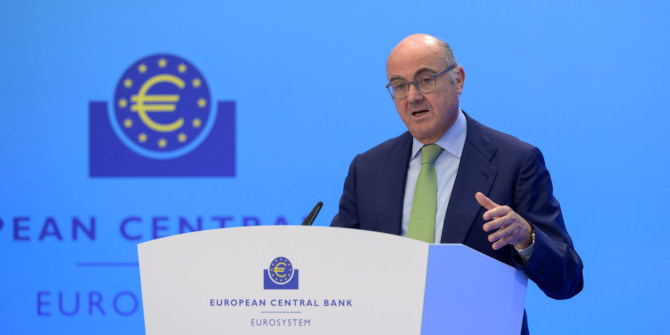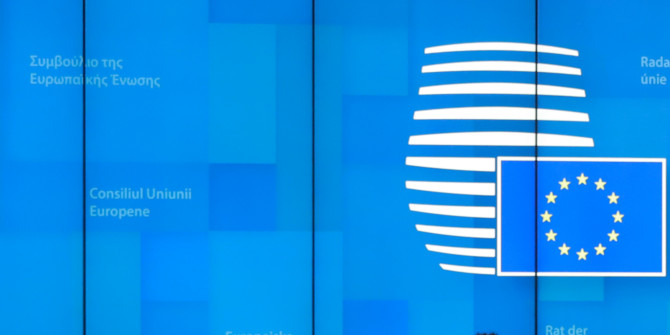Despite their strong emotional attachment to the European Union, EU citizens living outside their home country have a reduced chance of voting in European Parliament elections, write Nils Witte and Emanuel Deutschmann. Bureaucratic hurdles are likely to blame for the low turnout among those currently living abroad.
This article is part of a series on the 2024 European Parliament elections. The EUROPP blog will also be co-hosting a panel discussion on the elections at LSE on 6 June.
In this year’s European Parliament elections, pundits expect a major shift to the right. In such a situation – with much at stake – it seems important that everyone who is eligible to cast a vote is able to do so without difficulty. Yet, to date, notable obstacles exist for mobile Europeans who are residing outside their country of origin.
In contrast to non-mobile Europeans, who usually do not have to become proactive until election day, many mobile Europeans have to actively register beforehand to be able to cast their votes. And they have to do so very early on, often several months before the election.
Based on official EU information, the table below shows the prerequisites for mobile Europeans who want to vote in the upcoming election. It reveals several major obstacles: First, the registration options and deadlines differ a lot between EU member states. For example, Swedish citizens residing in Belgium had to decide if they wanted to register to vote in Sweden by 16 May, while if they wanted to vote in Belgium the deadline was 29 February. Many mobile EU citizens have a choice between voting for candidates in their origin country or in their residence country. But there are exceptions: Slovakians abroad, for example, cannot vote in Slovakia. This multiplicity of rules creates a need to actively search for the conditions that apply in each particular case.
Table: Registration deadlines for mobile Europeans voting in the 2024 European Parliament elections
Source: elections.europa.eu
Among the thirteen member states that list a precise registration deadline for their own nationals residing abroad, no less than twelve different registration dates exist. In the case of registration deadlines for non-nationals in the country, there are 20 unique dates among the 20 different countries that list a specific deadline. “United in diversity” is the EU’s motto and our table shows that it is certainly also united in a diversity of deadlines.
Crucially, many of these deadlines are very early. Several deadlines expired in March, with some as early as January and February, many months before the election. This creates a serious obstacle for participation in the election. Mobile Europeans in these countries are required to think about registering early on, long before the news cycle around the election even starts. And, of course, long before any posters of parties and candidates appear in the streets.
Free movement of European citizens is hailed as a fundamental right. It is bad news for democracy if those who enjoy this fundamental right encounter obstacles to exercising their electoral rights. Free European mobility and European electoral rights should not be mutually exclusive, but current bureaucratic hurdles (including early registration deadlines and country-specific opt-in registration systems) seem to create practical trade-offs between the two. This could reduce turnout among mobile Europeans.
Lower turnout among EU migrants
Internationally mobile Europeans are known to be Europhile. Compared with the non-mobile population, Europeans with (past) transnational experiences feel more European and they are more likely to favour redistributive solidarity with EU citizens and other immigrants in their country. Despite these pro-EU dispositions, our research shows internationally mobile Europeans have a reduced chance of voting in European Parliament elections.
We analysed data from the German Emigration and Remigration Panel Study (GERPS), which covers German citizens who either emigrated or returned from abroad. One question in this representative survey was about participation in the last European Parliament election, which took place in 2019.
Average turnout among Germans who currently reside in other EU countries was 69%. This may seem high compared to the average turnout in the general German population of 61% and 51% in the European Union as a whole. However, past intra-EU migrants (i.e. Germans who have lived in other EU countries and have since returned to Germany) are a more meaningful reference group, since they have comparable social characteristics. Turnout among this reference group is 80%. Thus, one could argue that the chance of those abroad voting is suppressed by eleven percentage points compared to their counterparts who have returned to Germany.
The gap is even larger for global migrants. Those Germans who currently reside in a country outside the EU only had a 25% chance of voting in the past European Parliament election, compared to a turnout of 84% among past global migrants – a staggering difference of 59 percentage points.
While we do not have direct proof that this suppressed turnout is due to the bureaucratic obstacles described above, two things suggest such a negative impact. First, the turnout is much lower for global migrants, who do not have the option to register to vote in their non-EU host countries. Intra-EU migrants usually do have this option, which could explain their higher (although still suppressed) chance to vote.
Second, we also looked at how connected with the EU respondents feel. Here, no reduction occurs for current compared to past intra-EU migrants. If anything, current EU migrants feel slightly more connected with the European Union. It is therefore unlikely that they find voting unattractive. Rather, even though they feel emotionally connected to the EU, they often do not cast their vote. It seems highly plausible that this discrepancy between “feeling” and “practicing” Europe at least partially results from the bureaucratic obstacles outlined above, including the early opt-in registration deadlines.
Political consequences
European migrants are not just pro-European, they are also unlikely to vote for populist radical right parties, which promote anti-immigrant positions. Hence, a suppression of the vote of mobile Europeans could affect the outcome of the election and thus have important political consequences.
A lower turnout among current intra-EU migrants also contradicts the very idea of EU citizenship. EU citizens who currently live outside their origin country live the European spirit by enacting their membership rights to free movement. Their suppressed chance to vote should concern those interested in strengthening democracy in the European Parliament.
Although the problem of EU citizen disenfranchisement has been documented by the European Parliamentary Research Service, is has not been fully solved. If European citizenship is to be taken seriously, voter registration must be straightforward for mobile and non-mobile citizens alike. Efforts should be made to move registration deadlines closer to the election date and rules of registration should be harmonised and simplified. After all, those who live and love Europe should be able to vote in Europe.
For more information, see the authors’ accompanying working paper
Note: This article gives the views of the authors, not the position of EUROPP – European Politics and Policy or the London School of Economics. Featured image credit: CC-BY-4.0: © European Union 2024 – Source : EP








hey, this is super interesting research! It would be also very interesting to discover what influences the decision to vote in home country Vs host country. Also, maybe comparing migrants’ voting choices from different countries might be useful: e.g. Bulgarian migrants abroad increasingly vote for radical right/populist parties in the Bulgarian national elections (https://blogs.lse.ac.uk/europpblog/2021/05/10/voting-despite-the-state-how-bulgarians-living-abroad-are-making-their-voices-heard/)!
Thanks for this comment Julia! It would be great to have more information about where migrants vote and also research more about migrants from other origin countries than Germany. Unfortunately, our data are restricted to German citizens.
Because we don’t have information about party preferences of our own sample, we tried to learn from other studies, e.g., by Francesco Visconti and Junghyun Lim who are more optimistic about party preferences of (past) migrants (https://www.tandfonline.com/doi/abs/10.1080/17457289.2023.2241817 and https://journals.sagepub.com/doi/full/10.1177/00104140221089646). Do you know of any English sources regarding Bulgarian migrants’ external voting results?